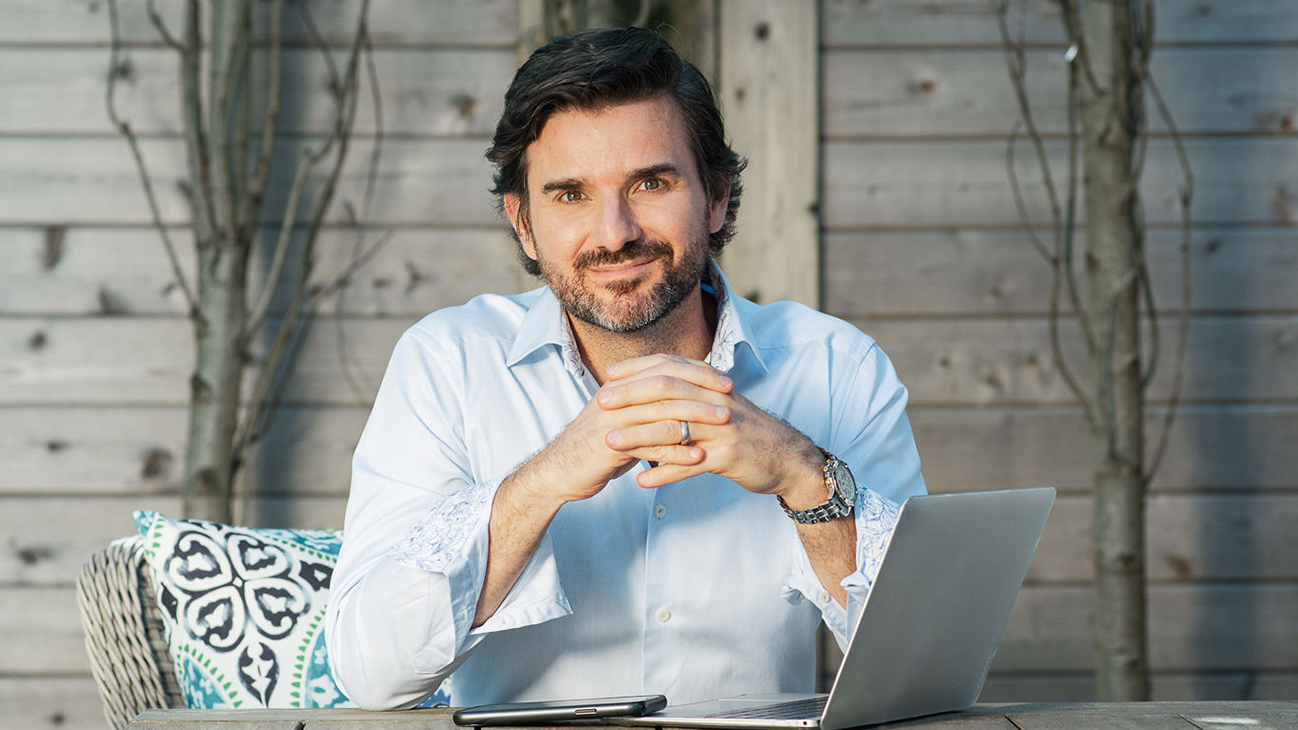Following a recent presentation for Manulife, acclaimed entrepreneur Michael Hyatt was invited to publish a piece on their website summarizing some of the key points of his presentation. Below is a slightly modified version of that piece, which puts the current rapid pace of transformation and upheaval, across business and society alike, into a historical context.
Change, Destruction, Creativity, and Renewal
We’ve never been good at change. We’re victims of our own complacency and want things to stay as they always have. In the Victorian era, there were articles written that criticized the growing prevalence of sofas – the fear being that children would stay in all day and read on them. The horror!
We also struggle to understand that change is often unlikely but looks so normal in a rear-view mirror. What do Presidents Regan, Clinton, Obama and Trump have in common? Rewind the tape. None of them were “supposed” to be President. Who would vote for an actor from California? How does someone unknown become the comeback kid? It’s not the right time for a junior senator from Illinois! No one will vote for a reality TV star!
Change is a 2800 Mile Journey
To better understand our moment, I think it’s worthwhile to look at history and the patterns of change we’ve lived through before. As much as the coronavirus pandemic may feel like an “unprecedented” event, the resulting change from it has parallels in our past. In our era of massive digital transformation, of not just business but day-to-day life itself, I’ve found it interesting to consider the history of mail in the US.
In the mid-1800s, mail travelling from the east to the west coast of the US took an average of 24 days by stagecoach. It was a treacherous trip and those 24-day runs would regularly take much longer, so a better solution was needed. This led to the creation of the Pony Express: dozens of postal outposts were established along the route, with riders on fast horses relaying mail from station to station. This cut the journey down to just 10 days and was an incredible innovation. But it wasn’t long before the Pony Express was supplanted by the telegraph, using electronic signals to transmit messages by code which were then written down and delivered locally by hand. Within the span of a couple decades, bi-coastal message delivery time went from 24+ days to 10 days to same day. And soon enough the earliest version of the telephone followed, allowing for instantaneous communication.
Why does all this matter? Because I see it as an illustrative example of some key points about change.
- We think change is unlikely – History is filled with examples of people thinking their current reality will continue in perpetuity.
- Change is easily forgotten – We adapt quickly and leave behind the obsolete and outdated.
- Change is often unknowable – In the late ‘90s could you have fathomed new job titles like “data scientist” that came from the broad adoption of the internet? Likely not.
Winners Jump Ahead
That last point is one of the most important to remember. It’s easy to look at the past and be judgmental of people in the moment. We wonder, “Why didn’t they see that X was the next big thing?” It’s rare to know what a sure thing will be. However, you do see time and again that successful people and organizations take risks and understand they need to embrace change. This realization is more crucial than ever right now. The truth is that winners try new things, fail, and then try again.
Another Henry Ford Moment
The way I see it, this global pandemic and the ensuing quarantine has brought with it another “Henry Ford Moment” for our society. Henry Ford, of course, is famous for creating the first broadly affordable car and basically codifying modern manufacturing in the process. His company and its innovations changed the shape of the 20th century. You can see the proof in pictures of New York. Have a look at New York in 1900 and then just over a decade later.3,4 Quite a change from horses to cars. Where did all the horse and buggy drivers go? There were no riots. Society simply moved on, like in the case of elevator operators and other jobs that become obsolete.
Crisis often creates opportunity and COVID-19 is no exception. For the sci-fi fans out there, I would compare it to going through a wormhole; it’s impossible to return to “normal” as we think about it. The best thing you can do now is to understand these facts: we’re not going back; the pace of technology is not slowing down; and your number one priority should be establishing yourself for fully virtual/digital business if you haven’t already. We were already undergoing a transformation, but this virus has condensed the timeline. It’s up to us to embrace this new reality and act on it.
My advice: Go 100% cloud based as quickly as you can, and strongly consider adopting “artificial intelligence” anywhere you can. Many of you may be uncertain as to what exactly AI means when I use it in this context. Well, think about AI technology as prediction machines—which is how my colleague Ajay Agrawal describes it in his book of the same name. We don’t have AI that looks anything like how it usually appears in the movies, and it won’t for some time. But what we do have is very powerful computers that can make better predictions than practically any human. Using all available data in your business, it can help you make better judgments, decisions and then finally actions. It’s important to think of this tech as a tool the same way we turned to software to help with accounting decades ago, and adapt it into our standard way of doing business.
The Golden Era is Ahead
It can be hard to stomach this is the middle of a pandemic when, as I write this, a second wave is underway. Winter is literally coming but, overall, the world is getting better.
I realize that in the context of everything right now all this can be frightening or lead us to pessimistic thoughts about the future. I want you to know that I’m optimistic. The unrelenting pace of change driven by new and improved computing power is unstoppable. The exponential growth of technology, the access to AI-assisted prediction models, and increasingly cheap, renewable energy are all reasons to be hopeful about our future. Destruction brings opportunity.
Almost all human progress has come with “Creative Destruction”. Will our many malls and shopping centres sit idle for decades and become a wasteland? No, progress will step in. Big dying retail space will become delivery and data centres, or maybe even sites for vertical farming.
We can face our new world with an open mind, willing to embrace change, and prepared for a golden era of prosperity.
We worry about change. Don’t – we always find a way.
In our rapidly shifting business landscape, Michael Hyatt wants to inspire people to face change head-on, and give them the tools and insight needed to succeed. A self-made millionaire who built two highly successful tech firms, he ranks as one of Canada’s top entrepreneurs, and is a mentor and investor in several start-ups. Whether speaking on leadership, innovation, entrepreneurship, or the future of tech, Hyatt shows audiences how to meet our uncertain future with creativity, knowledge, and adaptability.
If you’re interested in booking Michael or another speaker for a virtual presentation, please contact us for more information.




